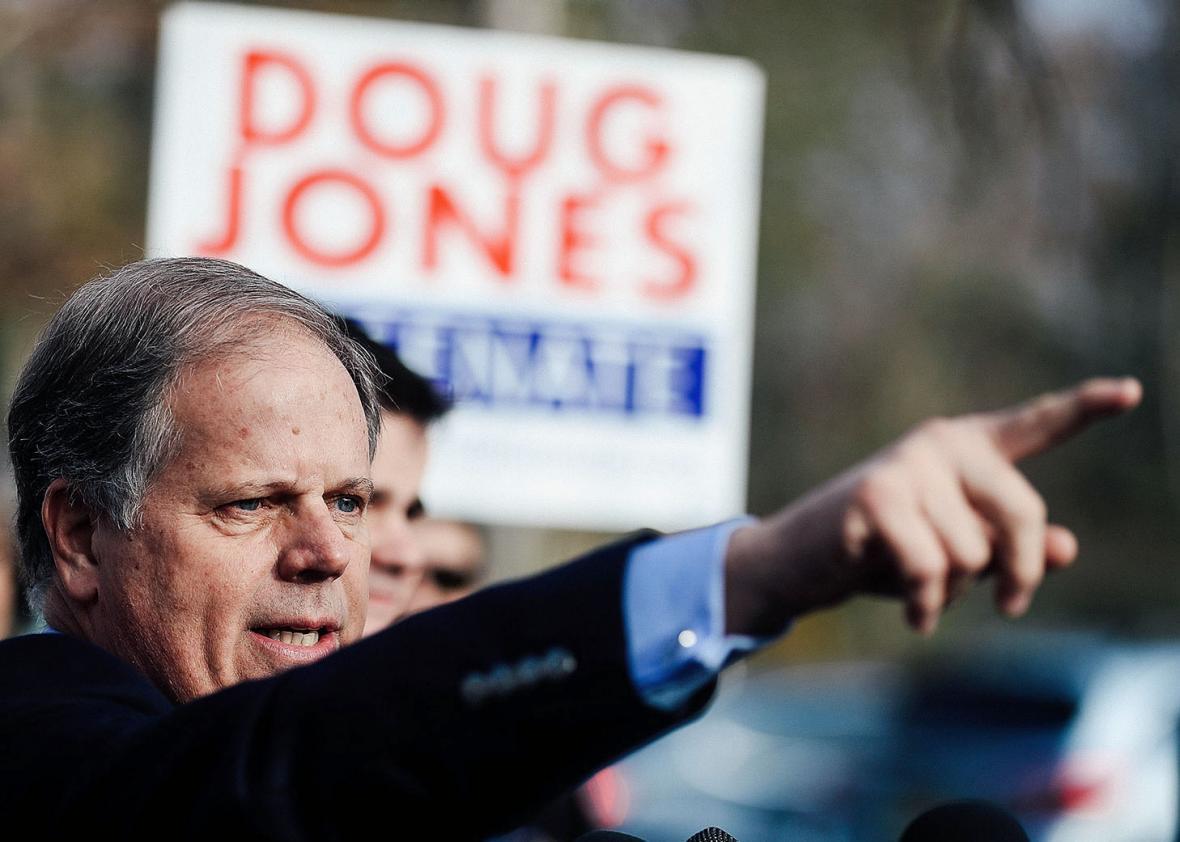BIRMINGHAM, Alabama—If ever there was a time for Alabama to buck its 25-year history of electing Republicans—and only Republicans—to the United States Senate, now is it.
A long history of extreme gerrymandering and racial polarization has isolated and disempowered most of the state’s Democratic voters, which is to say, most of its black voters. But the close race between Roy Moore and Doug Jones—competitive even before Moore was accused of sexual assault and misconduct—has energized Democrats. Alabama has a strong tradition of grassroots activism, devoted to providing real gains for ordinary people, and this race has given many a reason to participate in the electoral process. For the first time in decades, they could have a high-profile ally in Washington, or at least, not a direct adversary.
Democrats are certainly charged up in a state where party infrastructure is weak, and it helps that the Republican nominee is a despised figure and accused child molester. One poll, from Fox News, has Jones with a 10-point lead over Moore, and turnout appeared to be high on Tuesday among black voters in parts of the state that are crucial to a Jones victory. Nearly every black voter I spoke with over the past few days said they planned to vote.
Not that anyone is predicting victory just yet. Another poll, from Emerson College, found Moore with a 9-point lead over Jones. Republican voters may be nervous about voicing support for Moore or—in a racially polarized state where the Democratic Party is deeply disliked by white Alabamians—reluctant to say they will vote for Jones. There are too many variables, too many contingencies, to predict the outcome.
A simple average of all available public polls shows Moore with the advantage. Come Wednesday morning, he might be on his way to Washington.
But Alabama Democrats are aware of this. They are prepared for it. And they’re not discouraged.
“I think regardless of what happens, this right here represents an overall movement, an overall engagement of people who are seeing change,” said Blair Liggins, a Birmingham resident (and transplant from the West Coast) supporting Jones at a Monday night rally. “Whether or not Doug Jones wins, I think what it shows is that it’s possible.”
Betty Burtram, a longtime resident of Jefferson County, had a similar view. “I do not believe Alabamians will disengage. I believe they will be bitterly disappointed. They will be embarrassed. But they will be hopeful that what we started with this campaign will build, and we can keep moving forward to try to get a Democrat elected in the future.”
I heard this again and again from Jones supporters. “I will take [Moore winning] as a chance to get up, dust my feet off, reflect, and continue to educate this state,” said Keisha in Birmingham, who declined to give me her last name.
From the perspective of national politics, it’s easy to generalize Alabama as simply a red state of evangelicals and conservatives. But as with every state, Alabama contains multitudes. Roy Moore’s extreme revanchism has a real opponent in the coalition of Alabamians who seek to modernize the state and turn it away—however slightly—from its reactionary past. Tuesday’s results will go a long way toward showing how large that coalition is.
Even if they fail to beat Moore, Democrats will likely come close. And while winning in politics is always preferable to losing, there is a way to lose well—to lose but build the connections and infrastructure that enable future change. Which is to say that, even if things may seem hopeless for Alabama progressives in the event of a Moore win, there’s still value in seeding the ground for an eventual harvest.
